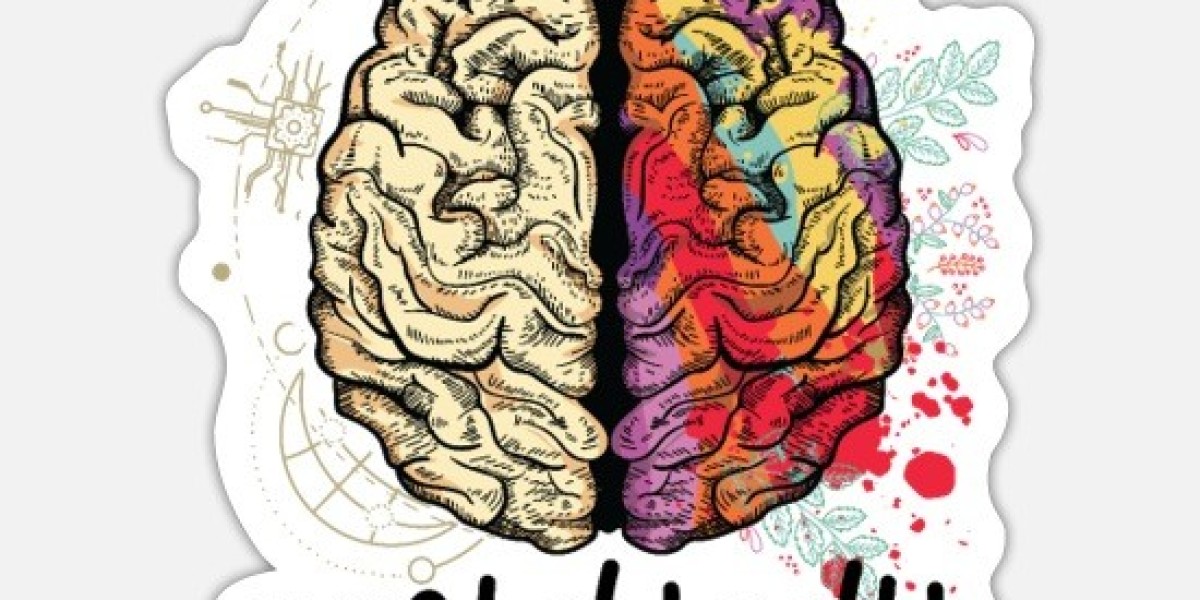Nutrition plays a pivotal role in our overall health, and its impact extends far beyond physical well-being. Increasingly, research is uncovering how diet influences mental health, revealing a complex interplay between what we eat and how we feel. From mood stabilization to cognitive function, understanding the relationship between nutrition and mental health can empower us to make dietary choices that support our emotional and psychological well-being.
The Gut-Brain Connection
The gut-brain connection is a fundamental aspect of how nutrition affects mental health. The gut, often referred to as the "second brain," houses a vast network of neurons and is involved in the production of neurotransmitters like serotonin. About 90% of serotonin, a neurotransmitter that regulates mood, is produced in the gut. This connection means that what we eat can influence our mood and mental health by affecting gut health.
A balanced gut microbiome, which consists of beneficial bacteria, plays a crucial role in maintaining mental health. Diets rich in fiber, prebiotics, and probiotics can support a healthy gut microbiome, enhancing the production of mood-regulating neurotransmitters and reducing inflammation. Conversely, diets high in processed foods, sugars, and unhealthy fats can disrupt the gut microbiome and negatively impact mental health.
Nutrients and Mood Regulation
Certain nutrients have been shown to play a significant role in mood regulation and overall mental well-being:
Omega-3 Fatty Acids:
Found in fatty fish (such as salmon and sardines), flaxseeds, and walnuts, omega-3 fatty acids are essential for brain health. They help reduce inflammation and support the structure of brain cells. Research suggests that omega-3s can help alleviate symptoms of depression and anxiety by influencing neurotransmitter function and reducing inflammatory responses.
B Vitamins
B vitamins, including B6, B12, and folate, are crucial for brain function and mood regulation. They are involved in neurotransmitter synthesis and the maintenance of healthy brain cells. Deficiencies in B vitamins have been linked to mood disorders, such as depression and anxiety. Foods rich in B vitamins include whole grains, legumes, leafy greens, and animal products.
Vitamin D:
Known as the "sunshine vitamin," vitamin D is produced in the skin in response to sunlight. It plays a role in regulating mood and preventing depression. Low levels of vitamin D have been associated with an increased risk of mood disorders. Foods like fatty fish, fortified dairy products, and egg yolks can help maintain adequate vitamin D levels.
Magnesium:
Magnesium is involved in over 300 biochemical reactions in the body, including those that regulate mood and stress. Magnesium deficiencies have been linked to increased anxiety and depression. Foods rich in magnesium include nuts, seeds, whole grains, and leafy green vegetables.
Antioxidants:
Antioxidants, such as vitamins C and E, help combat oxidative stress and inflammation, which can affect mental health. Fruits, vegetables, nuts, and seeds are rich sources of antioxidants that support brain health and reduce the risk of mood disorders.
The Impact of Sugar and Processed Foods
Dietary choices that include high amounts of sugar and processed foods can have a detrimental effect on mental health. High sugar intake has been associated with increased risk of mood disorders, including depression and anxiety. Processed foods, often high in unhealthy fats and low in essential nutrients, can contribute to inflammation and disrupt the balance of neurotransmitters.
The consumption of sugary snacks and drinks can lead to fluctuations in blood sugar levels, resulting in mood swings and irritability. In contrast, a diet high in whole, unprocessed foods—such as fruits, vegetables, lean proteins, and whole grains—can provide a steady supply of nutrients that support stable mood and overall mental well-being.
The Role of Hydration
Hydration is another crucial aspect of maintaining mental health. Dehydration can impair cognitive function, concentration, and mood. Even mild dehydration can lead to increased feelings of anxiety and irritability. Drinking adequate amounts of water throughout the day helps maintain optimal brain function and supports overall mental health.
Dietary Patterns and Mental Health
Certain dietary patterns have been linked to improved mental health outcomes:
Mediterranean Die:
The Mediterranean diet, which emphasizes fruits, vegetables, whole grains, nuts, seeds, and healthy fats (such as olive oil), has been associated with a lower risk of depression and cognitive decline. This diet's high content of omega-3 fatty acids, antioxidants, and anti-inflammatory compounds supports brain health and mood regulation.
Plant-Based Diets:
Plant-based diets, which focus on vegetables, fruits, legumes, and whole grains, have been linked to better mental health outcomes. These diets provide a wealth of nutrients that support brain function and reduce inflammation, potentially lowering the risk of mood disorders.
Balanced Diets:
Overall, a balanced diet that includes a variety of nutrient-dense foods can support mental health. Ensuring adequate intake of essential nutrients, such as vitamins, minerals, and fatty acids, helps maintain brain function and emotional well-being.
The Role of Mindful Eating
Mindful eating involves paying attention to the experience of eating and recognizing hunger and fullness cues. This practice can foster a healthier relationship with food and contribute to improved mental well-being. Mindful eating encourages individuals to savor their meals, choose nutrient-dense foods, and be aware of their body's responses, which can lead to better dietary choices and enhanced mental health.
Practical Tips for Improving Dietary Habits
Incorporating healthy dietary habits into daily life can support mental health:
Plan Balanced Meals:
Aim for balanced meals that include a variety of nutrient-dense foods, such as fruits, vegetables, whole grains, lean proteins, and healthy fats.
Limit Processed Foods:
Reduce the intake of processed foods, sugary snacks, and sugary beverages to avoid negative effects on mood and mental health.
Stay Hydrated:
Drink plenty of water throughout the day to support cognitive function and emotional stability.
Include Omega-3 Sources:
Incorporate sources of omega-3 fatty acids, such as fatty fish, flaxseeds, and walnuts, into your diet to support brain health.
Monitor Nutrient Intake:
Pay attention to your intake of essential nutrients, such as B vitamins, vitamin D, and magnesium, and consider incorporating foods rich in these nutrients.
Conclusion
The connection between nutrition and mental health is increasingly recognized as a vital aspect of overall well-being. By understanding how dietary choices impact mood, cognitive function, and emotional stability, individuals can make informed decisions that support their mental health. Incorporating nutrient-dense foods, maintaining hydration, and adopting mindful eating practices are practical steps that can enhance mental well-being. As research continues to uncover the intricate relationship between diet and mental health, it is clear that what we eat plays a significant role in shaping our emotional and psychological health.



